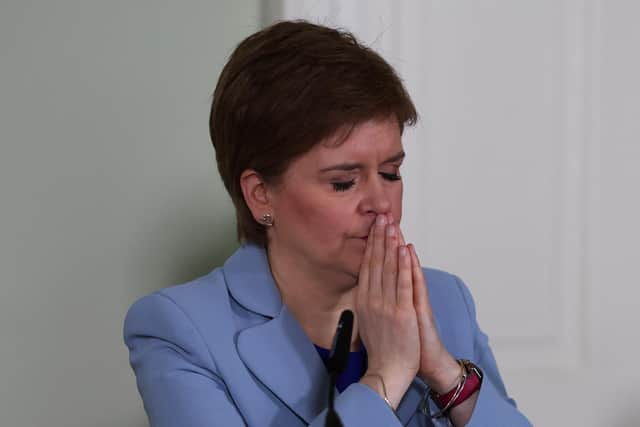What is a Section 30 Order? Can a second Scottish independence referendum happen without it?
“What I am not willing to do, what I will never do, is allow Scottish democracy to be a prisoner of Boris Johnson or any Prime Minister,” Nicola Sturgeon said at Holyrood on June 28.
The debate surrounding a second referendum has returned to the political agenda following the results of the Scottish Parliament election on 6 May.
Advertisement
Hide AdAdvertisement
Hide AdScottish First Minister Nicola Sturgeon has officially requested Westminster begin the process to allow another independence referendum to be held in Scotland.
What is the process for achieving this, and is it likely that Scotland will have a second independence referendum?
Section 30 Orders: What are they?
Section 30 refers to the section of the Scotland Act 1988 which bestows powers on Holyrood, allowing them to pass laws which would otherwise only be reserved to Westminster.


Currently, the Scottish Government lacks the legal power to hold a referendum on constitutional matters such as independence.
If the Scottish Parliament is to pass legislation on this matter, it must have the legal power to do so transferred to it from the UK government - either temporarily or permanently via a “Section 30 order.”
Is it the first time Section 30 orders have been granted?
It would not be the first time this happens as Section 30 orders have been used 16 times since the devolved Scottish parliament was created in 1999.
MSPs used these orders to legislate on topics such as reducing the voting age in Scottish elections.
Will Section 30 be granted by the UK government this time?
The existing Scottish Government was elected after the SNP and Scottish Green Party formed a power-sharing agreement that entailed both parties promising to host a second referendum in future.
Advertisement
Hide AdAdvertisement
Hide AdThe Scottish Government therefore states it has a democratic imperative to host another referendum.
However, as it stands there has yet to be consent given to the order and there is no indication that Boris Johnson’s UK Government will do so.
Many pro-Union advocates are arguing that Scottish independence was already settled in 2014, and voting for the Greens and SNP does not specifically confirm an endorsement of a second referendum, regardless of their election manifestos.
Can a Scottish independence referendum happen without a Section 30 order?
First Minister Nicola Sturgeon has said the Scottish Government could seek another referendum without a Section 30 order from the UK government.
At Bute House in Edinburgh on June 14, Sturgeon declared her government would “forge a way forward - if necessary - without a Section 30 order.”
However, the legal legitimacy of a second referendum without UK government approval is questionable, and has been dubbed a “wildcat referendum” by unionists.
Realistically, this battle would be contested at the Supreme Court, just as the UK government has successfully done in the past while contesting Scottish Parliament legislation that lied beyond their legal authority.
This would result in a loss for Sturgeon’s push to bring Scotland an ‘indyref2’.
Advertisement
Hide AdAdvertisement
Hide AdAs of June 28, the First Minister has stated her intention to host another Scottish referendum on October 19 (2023), but acknowledged that the bill will certainly go to court without a granted Section 30 order.
However, she said that if the court does not act in favour of the referendum then this is the fault of “Westminster legislation and not the court.”

